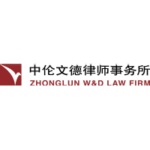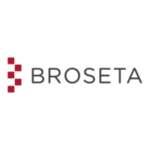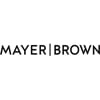-
How is the writing of insurance contracts regulated in your jurisdiction?
In Turkey, the writing of insurance contracts is governed through a multi-layered framework, the fundamentals of which can be noted as follows:
Insurance contracts are primarily regulated under the Sixth Book of the Turkish Commercial Code No. 6102 (“TCC”), in Articles 1401 to 1520. Thereby, general rules applicable to all insurance contracts and specific regulations for property, liability, life, accident, sickness, and health insurance are set forth. In this main source of Turkish insurance law, there are three catalogues of mandatory rules : (i) the breach of the first catalogue of mandatory rules will result in the invalidity of the insurance contract, (ii) the breach of the second catalogue of rules will result in the invalidity of the particular clause, (iii) the rules which cannot be amended to the detriment of the policyholder/insured/beneficiary constitute the third category of mandatory rules. Such rules must be considered in respect of the writing of insurance contracts. As an example, the insurance policy shall set out the respective rights of the parties, provisions relating to default, general and special conditions, if any, and shall be drafted in an intelligible and easily readable manner, as per Article 1425(1) TCC. This is such a rule that cannot be changed to the detriment of the insured.
The other principal source of Turkish insurance law is the Insurance Act No. 5684 (“Insurance Act”), which stipulates provisions and procedure as to the commencement of operations, management, organization, termination and supervision of activities of (re)insurance companies. The Insurance Act delegates the authority to supervise and regulate the insurance sector to the Insurance and Private Pension Regulation and Supervision Authority (“SEDDK” in Turkish), established by the Presidential Decree No. 47 in 2019, transferring the powers previously held by the Ministry of Treasury and Finance, the General Directorate of Insurance, and the Insurance Auditing Board. The Insurance Act also grants regulatory powers to the Turkish President regarding certain insurance-related matters, such as setting rules for the operation of foreign insurers and determining mandatory insurance types.
From the aspect of writing insurance contracts, Article 11(4) of the Insurance Act requires that risks that are excluded from coverage should be stated explicitly under an insurance contract and risks that are not specified are considered to be covered under the policy. Moreover, the burden of proof is on the insurer so to prove that there is no coverage or that a specific provision is an exclusion clause, as per Article 1409(2) TCC.
No foreign words are allowed under insurance contracts and the Turkish translations of any foreign words as determined by the Turkish Language Institution must be included therein, as per Article 11(5) of the Insurance Act. Besides, the Act on Compulsory Use of Turkish in Economic Enterprises dated 10 April 1926 and numbered 805 (“Act no. 805”) also provides certain restrictions regarding the use of foreign language.
Furthermore, there are about 84 general conditions, each relevant to a different type of insurance, which outline the scope of coverage, exclusions and additional coverages. To what extent these are mandatorily applicable is controversial. The Insurance Act provides that insurance contracts must comply with the general conditions approved and published by SEDDK. Besides, Article 1425(3) TCC stipulates that unless otherwise provided by law, any subsequent alteration of the general conditions, which are in favor of the policyholder, the insured or the beneficiary, shall be effective immediately and apply directly.
Additionally, the Turkish Code of Obligations No. 6098 (“TCO”) regulates the controlling of standardized contract terms (Article 20 et seq). It would also apply to insurance contracts, thereby impacting the writing of insurance clauses. In addition, the Consumer Protection Law No. 6502 (“CPL”) explicitly defines insurance contracts entered by consumers as consumer transactions, subjecting them to specific consumer protection rules.
Should there be a foreign element in an insurance contract, provisions of the Turkish Code on Private International Law and International Civil Procedure numbered 5718 (“TCPIL”) shall also enter consideration. The most relevancy with the writing of insurance contracts can be Article 5 of TCPIL. Accordingly, where a provision of a foreign law, that is applied to a specific case, is explicitly contrary to the Turkish public policy, the relevant provision of such foreign law shall not apply; and where deemed necessary, Turkish law would apply. As to the scope and extent of the public policy, some of the mandatory provisions of the TCC, the Insurance Act, and General Conditions, as referred above, might be questioned.
-
Are types of insurers regulated differently (i.e. life companies, reinsurers?)
Yes, in Turkey, types of insurers are regulated differently. Life insurance companies, non-life insurance companies, and reinsurance companies operate in distinct categories, each subject to separate regulatory and supervisory frameworks. This distinction is primarily regulated in the Insurance Act and the Regulation on the Establishment and Working Principles of Insurance and Reinsurance Companies (Official Gazette No. 26623, dated 24 August 2007). The differences are reflected in their areas of activities, capital requirements and licensing procedures.
Insurance companies are permitted to operate either in the life insurance group or in the non-life insurance group, but not in both simultaneously, and must obtain specific licenses for each separate branch in which they would like to operate. SEDDK is authorized to classify and regulate the types of insurance.
-
Are insurance brokers and other types of market intermediary subject to regulation?
Yes, insurance brokers and other types of market intermediary are subject to regulation.
The insurance intermediaries consist of insurance agencies and insurance brokers. These two types of intermediaries differ in terms of their legal status, the parties they represent, and the regulatory framework to which they are subject.
Insurance agencies are authorized to conclude or mediate insurance contracts on behalf of and in the name of insurance companies on a continuous basis. Their activities are governed by the Insurance Act, whereas more detailed provisions are set out in the Regulation on Insurance Agencies (Official Gazette No. 28980, dated 22 April 2014). In addition, general provisions of the TCC (Articles 102 et seq.) apply to agency relationships, especially in the absence of a special provision under insurance-related legislation.
Insurance brokers are professionals who act on behalf of those seeking to enter insurance or reinsurance contracts. They operate independently from insurers, maintaining neutrality in choosing the insurance company, and are primarily concerned with protecting the rights and interests of the insured. Brokerage activities are regulated under the Insurance Act and the Regulation on Insurance and Reinsurance Brokers (Official Gazette No.29368, dated 27 May 2015).
-
Is authorisation or a licence required and if so how long does it take on average to obtain such permission? What are the key criteria for authorisation?
Yes, the companies intending to operate in the capacity of insurance and reinsurance companies are required to obtain licence. For the purposes of commencing their operation, insurance and reinsurance companies must obtain a licence from SEDDK for each insurance branch in which they would like to operate, within one year following the completion of incorporation procedure, failing of which the company is precluded to use the terms “insurance” or “reinsurance” in its commercial title. As per the regulatory framework; insurance companies, reinsurance companies and Turkish branches of foreign insurance and reinsurance companies must not engage in any activity other than insurance activities. Insurance companies can be licensed to operate in either life or non-life insurance groups. Reinsurance companies, on the other hand, can be licensed for both life and non-life insurance groups.
Licensing procedures are governed by the Regulation on the Establishment and Working Principles of Insurance and Reinsurance Companies (Official Gazette No. 26623, dated 24 August 2007). Article 11 outlines the requirements regarding the application for the initial licence, while Article 13 details the documents and conditions required for the application for subsequent licences. Applications are now reviewed by SEDDK. The company must demonstrate a sound organizational structure, fulfilment of minimum paid-in capital requirements, establish risk management and internal control systems, prepare business plans and employ technically qualified staff, including a licensed actuary.
Provided that all information and documents are submitted in full, licenses shall be granted to those deemed eligible within a maximum of three months for the initial license and within a maximum of two months for subsequent licenses. The granted licenses shall be registered with the Trade Registry and announced by the company within one month from the date the license certificate is sent by SEDDK, in the Trade Registry Gazette and in two daily newspapers with nationwide circulation. One copy of each newspaper in which the announcements are published shall be submitted to SEDDK within ten business days. In cases where deficiencies are identified in the application or where the application is dismissed, the grounds for such dismissal shall be notified to the applicant in writing.
Foreign insurance and reinsurance companies can operate in Turkey by establishing a branch. The criteria applicable to such branches are specified in Article 15 of the same Regulation.
Insurance, reinsurance and private pension companies must become a member of the Insurance Association of Turkey, which is a professional organization with the status of public legal entity, within one month from the date of obtaining the licence.
On the other hand, while insurance brokers are required to be licensed, insurance agencies are not.
The Reinsurance and insurance brokerage activities are subject to licensing requirements, as set out in the Regulation on Insurance and Reinsurance Brokers. As per Article 12 of this Regulation, brokers can apply for licences up to four distinct groups: life, non-life, reinsurance, and pension insurance. A broker is allowed to be licensed in all four groups.
The Insurance agencies can however operate by way of obtaining a certificate from SEDDK confirming their required qualifications and must be registered with the Union of Chambers and Commodity Exchanges of Turkey (“TOBB” in Turkish), but no further licensing is necessary.
Foreign legal entity agents and brokers can operate in Turkey by way of opening a branch.
-
Are there restrictions or controls over who owns or controls insurers (including restrictions on foreign ownership)?
There are restrictions or controls regarding the ownership and control of insurance companies in Turkey, including those involving foreign shareholders.
Above all, insurance companies must be established as either joint-stock companies or cooperatives. Shareholders both domestic and foreign must meet certain financial soundness and legal compliance criteria, as determined by SEDDK.
Acquisitions of shares that directly or indirectly reach or exceed 10%, 20%, 33%, or 50% of the capital of an insurance or reinsurance company, as well as share transfers resulting in a shareholder’s stake reaching or falling below these thresholds, are subject to the approval of SEDDK.
Any transfer of shares that confers the privilege of appointing members to the board of directors in a manner that may have a significant impact on the oversight and management of the insurance company is, regardless of proportional thresholds, subject to the approval of SEDDK.
Shareholders who directly or indirectly hold 10% or more of the capital, voting rights, or usufruct rights, or who, even if below this threshold, hold shares granting the privilege to appoint members to the board of directors in a manner that may influence the oversight and management of the company, must meet the qualifications required of founders of insurance and reinsurance companies under Article 3, as per Article 9(5) of the Insurance Act.
This Article 3 of the Insurance Act requires founders to hold the following conditions:
- Having the financial capacity and credibility appropriate for founding or owning shares in an insurance or reinsurance company,
- Not having been sentenced to imprisonment or multiple judicial fines for breaches of insurance legislation,
- Not having been convicted of serious crimes such as embezzlement, bribery, corruption, theft, fraud, forgery, breach of trust, tax evasion, laundering of criminal proceeds, terrorism financing, or similar acts affecting public trust.
There is no general restriction on foreign ownership. Foreign investors may wholly or partially own insurance and reinsurance companies in Turkey. On the other hand, the above restrictions apply to foreign shareholders as well.
Shareholders, board members, authorized representatives and employees of insurance companies cannot perform brokerage activities; become board members, auditors or shareholders of brokerage companies; or be remunerated by brokerage companies for any work.
Board members, authorized representatives and employees of insurance companies cannot become board members, authorized representatives or shareholders of insurance agents; or be remunerated by insurance agents for any work.
Shareholders, board members, authorized representatives and employees of insurance companies are prohibited from performing insurance expertise activities.
-
Is it possible to insure or reinsure risks in your jurisdiction without a licence or authorisation? (i.e. on a non-admitted basis)?
It is, only under certain circumstances, possible to insure or reinsure risks in Turkey without a licence or authorization.
The principle is that a foreign insurance company cannot engage in insurance activities, including issuing, sales and marketing of an insurance product or policy with Turkish residents, without a legal presence in Turkey.
On the other hand, Article 15 of the Insurance Act provides several exceptions and provides that the following insurance can be purchased abroad:
- transportation insurance for goods subject to export and import,
- hull insurance for aircraft, ship and helicopter purchased with foreign loans, which are exclusively limited to the loan amount and applicable for the term until the foreign debt is paid up, or limited to the period of financial leasing, if financially leased from abroad,
- liability insurance for the operation of ships,
- life insurance,
- personal accident, sickness, health and motor vehicle insurances to be taken out by those who are temporarily staying abroad limited to the period of such stay.
The President of Turkey (formerly, Council of Ministers) is authorized to expand the scope of such exceptional insurances which may be issued abroad. For example, liability insurances for clinical drug research required by the Ministry of Health, insurance of ships and yachts registered in the Turkish International Ship Registry and nuclear liability insurance required to be taken out as per the Nuclear Regulation Law for damages arising from nuclear incidents, have been included among such exceptions.
Pursuant to the Circular No. 2011/9 of the Undersecretariat of Treasury, even for the foregoing exceptional insurances, a foreign insurance company is required to have a license in Turkey to actively engage or act as an agent in sales and marketing activities directly or via an agent, otherwise such activities might constitute non-compliance with the law and result in penalties; whereas an insured itself or through its broker can engage in relationship with a foreign insurance company and obtain insurance coverage for the foregoing exceptional insurances.
On the other hand, a reinsurance company must be either established in Turkey or have an organization in Turkey in the form of a branch to duly operate, similar to insurance companies. Nevertheless, the Circular No. 2007/5 of the Undersecretariat of Treasury provides a means for reinsurance companies to act in Turkey without a legal presence and holding a license. According to the Circular, a Turkish insurance company is allowed to conclude a reinsurance contract with a foreign reinsurance company, where the offer or proposal comes from the Turkish insurance company. In other words, although the foreign reinsurance companies are not allowed to engage in any active sales or marketing activities in Turkey; where the foreign reinsurance company merely receives and/or accepts an offer or a proposal from a Turkish insurer (or broker) to reinsure a risk in Turkey, it can reinsure the risks of a local insurance company. Consequently, fronting arrangements are common in the Turkish market, especially for high-risk covers.
-
Is a branch of an overseas insurer, insurance broker and/or other types of market intermediary in your jurisdiction subject to a similar regulatory framework as a locally incorporated entity?
Yes, a branch of an overseas insurer, insurance broker and/or other types of market intermediary in Turkey is, to a large extent, subject to a similar regulatory framework as a locally incorporated entity.
-
Are there any restrictions/substance limitations on branches established by overseas insurers?
There are restrictions and substance limitations on branches established by overseas insurers, ensuring that they operate under conditions similar to local entities. In other words, certain restrictions in terms of financial strength, good standing, criminal exposure et. seq., as described in respect of local insurance/reinsurance companies and/or their shareholders are also applicable to branches established by overseas insurers.
Foreign insurance and reinsurance companies must apply for a license to operate via a branch in Turkey. This application must be supported by extensive documentation, including the company’s articles of association, board resolution for branch establishment, capital allocation, business plan, product information, and financial records.
The branch must appoint a board of managers, including a branch manager and assistants, who meet the same “fit and proper” criteria as local insurance executives. Compliance with capital adequacy, internal audit systems, and personnel qualifications must also mirror those imposed on locally established companies. Furthermore, the branch may only carry out insurance-related activities and is prohibited from engaging in unrelated commercial operations. In this respect, foreign insurers operating through branches in Turkey are subject to similar prudential, managerial, and operational obligations as local insurers, ensuring regulatory consistency and financial integrity within the market.
-
What penalty is available for those who operate in your jurisdiction without appropriate permission?
Operating without appropriate permission is subject to both administrative and judicial penalties.
Any person or entity that operates in breach of licensing requirements shall be subject to administrative fines, temporary closure of workplaces and/or the suspension or confiscation of advertisements or promotional materials by the relevant authorities, as per Article 34 of the Insurance Act.
In addition to administrative penalties, Article 35 of the Insurance Act stipulates judicial penalties, including both imprisonment and judicial fines.
Accordingly, natural persons and the representatives of legal entities who engage in insurance activities without a license, or who use terms, titles, signs, or expressions that create the impression of being engaged in insurance business as defined under the Insurance Act, are subject to (i) imprisonment for a term of 3 to 5 years, and (ii) a judicial fine ranging from 600 to 1,000 days.Furthermore, an insurance contract concluded with an unlicensed insurer shall be treated as void under the gambling and betting provisions of the Turkish Code of Obligations, as per Article 1401(2) TCC. This provision, however, does not apply to insurance contracts concluded with foreign insurance companies.
Foreign insurance and reinsurance companies performing (re)insurance operations without obtaining appropriate licences may be subject to the temporary shutting down of workplaces and the blocking of advertising and marketing materials.
-
How rigorous is the supervisory and enforcement environment? What are the key areas of its focus?
The supervisory and enforcement environment governing the insurance and reinsurance sector is rigorous and institutionalized. Regulatory responsibilities and its supervision are primarily carried out by SEDDK.
SEDDK is responsible for licensing market participants, monitoring their financial soundness, and ensuring full compliance with the applicable regulatory framework. Key areas of regulatory focus include the followings:
- Solvency and capital adequacy of insurance and reinsurance undertakings,
- Proper conduct of business, including fair treatment to policyholders and transparency of policy terms,
- Consumer protection, especially for compulsory insurances,
- Internal systems and governance, such as risk management, internal audit, and actuarial control,
- Compliance with anti-money laundering obligations, coordinated with MASAK (the Financial Crimes Investigation Board).
-
How is the solvency of insurers (and reinsurers where relevant) supervised?
The financial adequacy and solvency of insurance and reinsurance companies in Turkey are mainly regulated and supervised under the Regulation on Measurement and Evaluation of Capital Adequacy of Insurance, Reinsurance and Pension Companies (Official Gazette No.29454, dated 23 August 2015). This supervision is carried out by SEDDK.
Key aspects of the supervision for solvency of (re)insurance companies mainly include the followings:
- Minimum Capital Requirements: Insurance and reinsurance companies must maintain a minimum paid-in capital as defined by SEDDK. This amount varies depending on the type and number of insurance branches the company operates in.
- Solvency/Financial Capability Margin: Companies must maintain a financial capability margin calculated in accordance with the Regulation on Measurement and Evaluation of Capital Adequacy of Insurance and Reinsurance Companies. This margin is designed to ensure that the company has sufficient own funds to meet its underwriting and investment risks.
- Technical Provisions: Insurers are required to calculate and maintain adequate technical reserves for claims incurred, unearned premiums and outstanding risks. These calculations are closely monitored and must comply with actuarial standards.
- Regular Reporting and Audits: Companies must submit periodic financial reports, solvency reports and actuarial statements to SEDDK.
- On-site and Off-site Supervision: SEDDK conducts both off-site supervision via reporting obligations and on-site inspections to verify financial status, risk exposure, and solvency levels.
- Intervention Measures: If a company is found to be undercapitalized or failing to meet solvency margins, SEDDK has the authority to issue warnings, restrict operations, request capital increases or ultimately revoke licenses.
In case the insurer becomes insolvent or any enforcement against the insurer is unsuccessful, the policyholder may request security from the insurer to fulfil its undertaking; in the event of failing of providing such security within one week as of the request, the policyholder is entitled to terminate the insurance contract, as per Article 1417 TCC.
Article 1418 TCC stipulates that in case of the bankruptcy of the insurer, the insurance contract shall terminate. Insurance indemnifications not effected by the insurer before the bankruptcy must be paid out first from the securities compulsorily constituted by the insurer in accordance with the Insurance Act, and thereafter from the bankruptcy proceeds.
-
What are the minimum capital requirements?
The minimum establishment capital, which consists of the amounts determined for the base capital and the insurance branches for which a license is requested, shall in no case be less than TRY 500 million (USD 12,977,237.92, as per the exchange rate of 7 May 2025), pursuant to the Circular on the Minimum Capital Amounts Prescribed for Insurance Branches numbered 2025/8 and dated 6 March 2025, issued by SEDDK.
The minimum capital amounts are updated annually based on the Producer Price Index (PPI) increase rates announced by the Turkish Statistical Institute (“TÜİK”, in Turkish) in January and July. The specified capital amount represents the minimum capital requirement for different insurance branches.
As set out in the Circular 2025/8, as of its publication date, insurance and reinsurance companies applying for licenses shall pay the required capital amount in the Circular in cash before submitting their applications for license. The minimum capital requirements for the establishment of insurance companies vary among the non-life, life, and reinsurance groups. Additionally, different amounts are stipulated for sub-categories referring to different insurance coverages that can be provided within these groups. Accordingly, the minimum capital requirement for insurance companies is updated to TRY 4,000,000,000 (USD 103,817,903.39) in total for the non-life insurance group, TRY 1,300,000,000 (USD 33,740,818.60) in total for the life insurance group and TRY 2,400,000,000 (USD 62,290,742.03) in total for the reinsurance group, pursuant to the relevant Circular 2025/8.
Legal entity brokers must have a minimum paid-in capital of TRY 2,500,000 (USD 64,886.19) and an additional amount of TRY 500,000 (USD 12,977.23) for each licence in life and non-life insurance, TRY 1,000,000 (USD 25,954.47) for licence in reinsurance. All share certificates must be registered shares.
Legal entity agents must have a minimum paid-in capital of TRY 3,250,000 (USD 84,352.04), and the minimum capital for branches is TRY 4,000,000 (USD 103,817.90) for the headquarters and TRY 325,000 (USD 8,435.20) for each branch. The minimum capital for agents performing distance sales, without opening a branch, is TRY 4,000,000 (USD 103,817.90).
-
Is there a policyholder protection scheme in your jurisdiction?
Yes, there is a policyholder protection scheme in our jurisdiction, known as the Assurance Account. It is regulated under the Insurance Act and it applies in relation to compulsory insurance types and in case inter alia an insurance company becomes bankrupt. Accordingly, in case where damages arise in connection with risks covered by certain compulsory insurances, and could not be paid by the bankrupt insurance company, the policyholder’s claims shall be covered through the Assurance Account mechanism.
Additionally, insurance companies are required to allocate certain assets as securities to cover their liabilities arising from insurance contracts concluded in Turkey. Such securities shall not be included in the bankruptcy estate and they can neither be seized, nor be subject to interim measures for third party claims.
Legalwise, TCC, by way mandatory rules catalogue, provide protection to some extent. Articles 1452, 1486, and 1520 TCC give a list of rules that are fully or partly mandatory. Besides, all insurance policies issued in Turkey should comply with the General Conditions, which are to be applied uniformly by insurance companies.
Another mechanism for protection can be the “contra proferentem” principle, also known as “interpretation against the draftsman”. Accordingly, if the wording of the insurance contract is unclear, it should be interpreted in favour of the policyholder/insured. This principle derives from Article 11(4) of the Insurance Law and Article 1425(1) TCC.
Another mechanism for policyholder protection is that foreign language terms must not be used in insurance contracts. A Turkish translation of foreign words must be used in a way determined by the Turkish Language Institute.
Also, the insurer and its agent must provide the policyholder in writing with all matters related to the insurance contract such as the the insured’s rights, the provisions to which the insured should pay special attention, notification duties that may arise in the course of the insurance cover, before the conclusion of the insurance contract, in accordance with Article 1423 TCC and the Regulation on Information in Insurance Contracts (Official Gazette No.31039, dated 14 February 2020). The insurer must also inform the policyholder during the contract period, of the facts and developments that can be of importance to the insurance relationship.
-
How are groups supervised if at all?
Insurance companies and their affiliated group entities are subject to continuous supervision by SEDDK, starting from the licensing and authorization process and throughout the entire course of their operations. The supervision covers a wide range of areas, including the companies’ corporate requirements, financial requirements, reporting requirements and operational requirements as well as their compliance with insurance legislation. The adequacy of technical reserves and the eligibility of the assets backing these reserves in line with regulatory requirements are also within the scope of such supervision.
The core regulatory principles are generally consistent across life, non-life, and reinsurance groups.
-
Do senior managers have to meet fit and proper requirements and/or be approved?
Senior executives of insurance and reinsurance companies are required to meet the “fit and proper” criteria, including standards of competence, integrity and professional suitability, and their appointments must be approved by SEDDK.
The qualifications required for founders and senior managers of such companies are explicitly set forth under Article 4 of the Insurance Act. Accordingly, members of the board of directors must meet the qualifications required for the founders of insurance and reinsurance companies, except for fulfilling the financial strength requirements. A majority of the board members must have completed at least a four-year higher education program and be selected from among individuals with a minimum of three years of experience in one or more of the following fields: insurance, economics, business administration, accounting, law, finance, mathematics, statistics, actuary or engineering.
The general manager and deputy general managers must, except for satisfying the financial strength requirements, also meet the qualifications required for the founders of insurance and reinsurance companies. They must have completed at least a four-year higher education program. Individuals to be appointed as general manager must have at least ten years of experience in one or more of the following fields: insurance, economics, business administration, accounting, law, finance, mathematics, statistics, actuary or engineering. Individuals to be appointed as deputy general managers responsible for insurance or technical aspects of insurance must have no less than seven years of experience in the aforementioned fields. Deputy general managers to be appointed to other areas must have at least seven years of experience in their respective fields of responsibility. At least one of the deputy general managers must be responsible for insurance and technical aspects of insurance.
Additionally, the Regulation on the Establishment and Working Principles of Insurance and Reinsurance Companies prescribes specific requirements for key managerial positions, such as the general manager, deputy general managers, internal audit officers and risk management officers. Before any appointments are made for members of the board of directors, the general manager, deputy general managers, other executives who authorized signatories, the documents listed in Article 6 of the said Regulation, including the information and declaration form regarding the members of the board of directors, auditors and executives of (re)insurance companies must be submitted to SEDDK.
If SEDDK does not have an adverse opinion within ten business days following the receipt of all required documents in full, the appointment of the individuals may proceed. However, if it is later determined that any appointed board member does not meet the qualifications stipulated under Article 4 of the Insurance Act, SEDDK may at any time request the removal of that board member.
-
To what extent might senior managers be held personally liable for regulatory breaches in your jurisdiction?
Insurance and reinsurance companies must be established in the form of joint-stock companies or cooperative in order to operate in Turkey. As a rule, these companies are liable for their debts only to the extent of their assets. This principle also applies to insurance and reinsurance companies.
Certain regulatory breaches may result in judicial fines and sanctions being imposed on real persons including senior managers and/or representatives. Some of those can be listed as follows:
- Undertaking risk or giving impression of being engaged in (re)insurance activities without obtaining required licence,
- Conclusion of insurance contracts without a licence,
- Failure to provide information and documentation required by relevant authorities and auditors, or provision of misleading or incorrect information and documentation,
- Giving intentional damage to the reputation or assets of entities or spreading false news.
Besides, embezzlement of funds or other assets of (re)insurance companies by board members requires for their imprisonment.
To what extent members of board of directors and managers be held personally liable is regulated under Article 553 TCC. It provides that in the event that founders, members of board of directors, managers and liquidators negligently breach their obligations under the law and the articles of association, they shall be liable for the damages incurred by the company, shareholders and the creditors of the company.
In addition, in the case of public debts which cannot be recovered from the company’s assets, board members may be held personally liable.
-
Are there minimum presence requirements in order to undertake insurance activities in your jurisdiction (and obtain and maintain relevant licenses and authorisations)?
Yes, there are minimum presence requirements in order to undertake insurance activities in Turkey. The physical presence requirement is having a company or branch located in Turkey.
The physical presence requirement as to an insurance or reinsurance company operating in Turkey can be fulfilled in two forms: (i) the insurance company might be duly established in Turkey as a joint-stock company or a cooperative, having a registered head office address in Turkey and obtained a license for its insurance activities or (ii) the insurance company established abroad might have an organization in Turkey established in the form of a branch which duly obtained a license for its insurance activities.
Insurance brokers and agents must reside in Turkey if they are real persons or must have their headquarters in Turkey if they are legal entities, acccording to the Regulation on Insurance and Reinsurance Brokers and Regulation on Insurance Agencies respectively.
-
Are there restrictions on outsourcing services, third party risk management and/or operational resilience requirements relating to the business?
There are restrictions on outsourcing services, third party risk management and/or operational resilience requirements relating to the business.
Insurance companies and pension companies are allowed to outsource only ancillary and supplementary services to their core operations, under certain conditions, as stipulated in Article 31 of the Insurance Act and the Regulation on Insurance Support Services (Official Gazette No. 29459, dated 28 August 2015).
The procedures and restrictions stipulated in the said Regulation shall apply while outsourcing the following services: (a) Technical assessment and inspection services carried out independently from insurance loss adjusting, within the processes of policy issuance, (b) claims handling and indemnity payment, (c) services aimed at risk mitigation before loss and loss minimization after loss (d) claims notification and subsequent services, (e) repair and maintenance services, (f) spare parts supply and inspection services, (g) assistance services, (h) treatment and assistance services, (i) call center services, (j) salvage management services, (k) subrogation recovery services, (l) archive management services, (m) product and tariff development services. On the other hand, services seconded employees from other firms, any consultancy services including legal and tax consultancy services and advertising services do not fall within the scope of the Regulation, whereby they are not subject to restrictions described therein and can be freely outsourced.
When outsourcing permitted services, insurance companies must comply with the following obligations and restrictions:
- For domestic assistance services, the support service provider must be established in Turkey and registered with the Insurance Information and Monitoring Center (“SBGM”, in Turkish).
- Service providers must possess an organizational structure, technical infrastructure, trained human resources, and sufficient knowledge and experience to perform the requested services and have a clean track record either domestically or abroad, within the last five years. Insurance companies are also required to verify that service providers possess adequate technical infrastructure, financial capability, human resources, experience and meet other requirements stipulated under the Regulation.
- Service providers may not simultaneously engage in insurance intermediation activities related to the company to which they are providing support services.
- Prior to procuring any outsourced support service, insurance companies shall submit a report to SBGM, including an assessment of potential risks arising from the outsourced service and their management as well as an evaluation of the expected benefits and costs. Insurance companies are also required to submit annual reports, by the end of March each year, to SBGM, including a risk assessment and cost-benefit analysis related to their outsourced operations.
- In the provision of support services, it must be clearly stated on whose behalf the service is being rendered.
- The outsourcing of support services does not release insurance companies’ legal and contractual responsibilities arising from law and insurance contracts.
- Insurance companies shall take necessary measures to ensure confidentiality of any information relating to the insured, beneficiaries and participants that the service provider may become aware of while providing services.
- The partial subcontracting of support services is permissible only if the subcontractor meets the conditions set forth in the Regulation and is authorized by the insurance company.
In addition, sub-agency is strictly prohibited under the Regulation on Insurance Agencies.
-
Are there restrictions on the types of assets which insurers or reinsurers can invest in or capital requirements which may influence the type of investments held?
Yes, there are restrictions on the types of assets which insurers or reinsurers can invest in or capital requirements which may influence the type of investments held.
These matters are primarily regulated under the Insurance Act, the Regulation on Technical Provisions of Insurance, Reinsurance and Pension Companies and the Assets in which Such Provisions Shall Be Invested (Official Gazette No.26606, dated 7 August 2007), the Regulation on the Measurement and Evaluation of Capital Adequacy of Insurance, Reinsurance and Pension Companies (Official Gazette No.29454, dated 23 August 2015) and the Regulation on the Financial Reporting of Insurance, Reinsurance and Pension Companies (Official Gazette No.26582, dated 14 July 2007).
The restrictions include limits on specific asset classes, such as equities, real estate, and foreign currency-denominated instruments as well as prohibitions or limitations on investments in high-risk or non-transparent financial products. Only assets ensuring defined standards of liquidity, creditworthiness and valuation may be used to cover technical provisions.
(Re)Insurance companies are also required to establish a macro-level investment policy, which reflects the company’s risk profile, long-term asset-liability strategy, sectoral investment etc. The regulatory framework aims for a direct link to be established between investment strategies and capital adequacy of insurance companies, thereby ensuring the financial stability of the sector and the protection of policyholders’ and beneficiaries’ rights. This framework is supported by a comprehensive investment monitoring and financial oversight system carried out by SEDDK.
To explain further; the Regulation on Technical Provisions of Insurance, Reinsurance and Pension Companies and the Assets in which Such Provisions Shall Be Invested requires (re)insurance companies to maintain assets at a level sufficient to cover their technical provisions.
The Regulation allows for the following assets be used to cover technical provisions: Turkish Lira; Foreign currencies traded by the Central Bank of the Republic of Turkey; Time and demand deposits in Turkish Lira; Demand and participation accounts held with participation banks; Blocked credit card accounts (excluding individual pension contributions); Foreign currency deposit accounts and precious metal accounts; Government bonds, treasury bills, and other financial instruments issued by the State; Corporate bonds and other fixed-income instruments issued by the private sector; Equities and other variable-income financial instruments; Investment fund participation certificates; Repurchase (repo) transactions; Receivables arising from core operations and the reinsurer’s share in technical provisions; Policy loans, whether linked to insurance contracts or not; Real estate; Tangible fixed assets other than real estate; Prepaid taxes and funds, as well as deferred tax assets; Lease certificates; Debt instruments issued by development banks designated by SEDDK.
To hedge against risks such as exchange rate, interest rate, and market risks associated with their investment portfolios, (re)insurance companies may enter option contracts, forward transactions, financial futures contracts and options on futures, in accordance with the principles determined by SEDDK, and upon consultation with the Capital Markets Board.
As a principle, assets covering technical provisions allocated for risks located in Turkey shall be kept within Turkey. The procedures and principles regarding the use of foreign financial assets — issued by foreign countries, traded in foreign markets, and subject to credit rating — as well as real estate located abroad, for covering technical provisions shall be determined by a Communiqué issued by SEDDK (Communiqué published in the Official Gazette dated 21 January 2009, regarding foreign assets in which the technical provisions of insurance, reinsurance and pension companies may be invested).
Except for Takasbank- Istanbul Settlement and Custody Bank Inc.-, the assets invested and held in custody by insurance companies shall be maintained with at least two financial institutions. It is essential that these assets are distributed in a balanced manner among the financial institutions.
Within the framework of measures to be taken regarding financial soundness, SEDDK may determine the number of financial institutions where the insurance companies invested and custodial assets are held, as well as the proportions of such assets held with each institution.
-
Are there requirements or regulatory expectations regarding the management of an insurer's reinsurance risk, including any restrictions on the level / type of reinsurance utilised?
Under Turkish insurance law, the following certain regulatory requirements and expectations governing how reinsurance arrangements should be managed, may be noted:
- Article 16(8) of the Insurance Act requires for the reinsurer’s share in technical provisions shall be proportional to the risk and premium transferred. The emphasis is given to the principle of proportionality by this provision.
- Articles 16 and 17 also require insurers to maintain adequate technical reserves and matching assets, including the reinsured portions. This means that the risk transfer must be sound and properly reflected in the insurer’s balance sheet.
- In cases where the insurer’s financial structure deteriorates to a level that may endanger policyholders’ rights, Article 20 authorizes the competent authority (SEDDK) to impose corrective measures, such as requiring increase of capital, risk transfers or portfolio transfers.
- Reinsurance contracts must clearly set out the rights and obligations of the parties, the scope of risk transferred, premium structure and claims handling procedures.
- Although there is no general requirement for compulsory reinsurance in every insurance line, specific statutory and institutional frameworks require compulsory reinsurance arrangements in limited contexts, such as: (i) DASK (Turkish Catastrophe Insurance Pool): In the context of compulsory earthquake insurance, the DASK system cedes portions of the risk to international reinsurance markets; and (ii) TARSİM (Agricultural Insurance Pool): For government-supported agricultural insurance schemes, reinsurance is arranged through the TARSİM pool, and insurers participating in these schemes are subject to risk sharing mechanisms.
-
How are sales of insurance supervised or controlled?
Insurance products can only be marketed and sold by licensed insurance companies and authorised intermediaries, including agents and brokers. These entities are required to comply with specific professional, financial and ethical standards.
A core aspect of supervision is the pre-contractual information duty, requiring insurers and intermediaries to inform in writing the policyholder of necessary information before the conclusion of the insurance contract.
The Insurance Act explicitly sets out that insurance companies and intermediaries shall not prepare any brochures, prospectuses, documents, advertisements or promotional materials in a manner that could mislead policyholders as to the nature, scope or limits of the rights and benefits provided under their commitments. They shall not make any false, misleading, deceptive or unfairly competitive statements to individuals or entities. In case of any breach of any of these, the matter shall be reported to the Advertising Board operating under the Consumer Protection Law numbered 6502.
The same provision further stipulates that insurance companies, reinsurance companies, intermediaries and insurance adjusters are obliged to refrain from any conduct that may jeopardize the rights and interests of policyholders; to act in compliance with the legislation and the principles of their business plans; and to conduct their activities in accordance with the requirements of insurance practice and the principles of good faith. SEDDK is authorized to take all necessary measures to ensure compliance by insurance companies, reinsurance companies and intermediaries with these rules.
It is also clearly regulated under the same provision that the right of individuals to freely choose their insurance company shall not be restricted. In cases where one party to a contract is obliged to obtain insurance as a condition of the agreement, any clause stipulating that such insurance must be taken out with a specific insurance company shall be deemed null and void.
Furthermore, distance selling and online sales are specifically regulated under the Regulation on Activities Considered as Insurance and Distance Insurance Contracts (Official Gazette No.31513, dated 16 June 2021), requiring compliance with several technical and legal requirements. Intermediaries conducting distance sales must also meet additional capital and reporting obligations.
-
To what extent is it possible to actively market the sale of insurance into your jurisdiction on a cross border basis and are there specific or additional rules pertaining to distance selling or online sales of insurance?
Insurance contracts concerning insurable interests located in Turkey must in principle be concluded with insurance companies licensed and operating within Turkey. Pursuant to Article 15(2) of the Insurance Act, only a limited set of exceptions allows the conclusion of insurance contracts with foreign insurers. The President of Turkey (formerly, Council of Ministers) is authorized to expand the scope of such exceptional insurances which may be issued abroad (please see Q6). That being the case, pursuant to the Circular No. 2011/9 of the Undersecretariat of Treasury, even for those exceptional insurances, a foreign insurance company is required to have a license in Turkey to actively engage or act as an agent in sales and marketing activities directly or via an agent, otherwise such activities might constitute non-compliance with the law and result in penalties; whereas an insured itself or through its broker can engage in relationship with a foreign insurance company and obtain insurance coverage for the exceptional insurances.
In terms of reinsurance, unless a foreign reinsurance company establishes a branch in Turkey and obtains required licence from SEDDK, it is not permitted to enter any reinsurance contracts nor offer reinsurance products directly to insurance companies operating in Turkey or to engage in advertising, publicity or similar marketing activities within the territory of Turkey. On the other hand, the Circular No. 2007/5 of the Undersecretariat of Treasury makes it clear for foreign reinsurance companies that a Turkish insurance company is allowed to conclude a reinsurance contract with a foreign reinsurance company where the offer or proposal comes from the Turkish insurance company. In such cases, the foreign reinsurance company is not deemed to be operating in Turkey, but merely accepting an offer submitted to it, whereby it can reinsure the risks of a local insurance company.
In terms of distance selling, the Regulation on Activities Considered as Insurance and Distance Insurance Contracts sets out principles and procedures regarding distance sales. Accordingly, a distance insurance contract refers to an insurance contract concluded through the use of a means of remote communication, without the simultaneous physical presence of the insurance company, the pension company or the insurance intermediary and the individual, within a system established for the remote marketing of insurance products. Means of remote communication refer to any means that enables the conclusion of a contract without physical face-to-face interaction, such as letter, catalogue, telephone, fax, radio, television, e-mail, SMS, internet, mobile application or ATM.
The Regulation requires insurance companies and insurance intermediaries that are concluding or mediating the conclusion of distance insurance contracts through remote communication tools must possess the necessary and adequate organizational and technical infrastructure. The insurance company offering the coverage must be clearly identified at the start of the sales process on any digital platform. Besides, the obligations regarding the insurer’s duty to inform as stipulated under the Regulation on Information in Insurance Contracts shall also apply to distance insurance contracts.
A key update introduced in 2025 significantly revised the requirements for insurance agencies intending to engage in distance sales. According to the amended Article 9 of the Regulation on Insurance Agencies, agencies that intend to operate solely through distance channels, without opening a branch, must now maintain a minimum paid-in capital of TRY 4 million. (USD 103,817.90) Furthermore, agencies that engage in distance selling must maintain equity capital of at least 4% of the total premium amount for which they acted as intermediary as of year-end. In any case, this amount shall not be less than TRY 4 million (USD 103,817.90).
-
Are insurers in your jurisdiction subject to additional requirements or duties in respect of consumers? Are consumer policies subject to restrictions, including any pricing restrictions? If so briefly describe the range of protections offered to consumer policyholders
Yes, insurers in our jurisdiction are subject to additional requirements or duties in respect of consumers and consumer policies are subject to restrictions.
The main source regarding the consumer law, that is the CPL provides additional security for consumers. The CPL defines insurance contracts concluded by natural persons acting for non-commercial or non-professional purposes as consumer transactions. Within this scope, consumer policyholders are offered the following protections:
- Unfair terms included in contracts concluded with consumers shall be deemed null and void. An unfair term refers to a contractual provision that is not individually negotiated with the consumer and that causes a significant imbalance, to the detriment of the consumer, in the rights and obligations of the parties arising from the contract in a manner contrary to the principle of good faith.
- Where the terms of the contract are in writing, they must be drafted in clear and comprehensible language that the consumer can understand. If a contractual provision is unclear or ambiguous or capable of more than one interpretation, it shall be construed in favor of the consumer.
- The consumer has the right to withdraw from the contract on distance sales within fourteen days without providing any justification and without incurring any penalty. The seller or provider is obliged to prove that the consumer has been duly informed about the right of withdrawal.
- A credit-linked insurance policy shall not be imposed on the consumer without the consumer’s explicit request, which must be in written form or via a permanent data retainer. Further, to submit loan offers to consumers with a requirement of having loan-linked insurance, the lender must also offer a loan agreement that does not require loan-linked insurance. The consumer shall be granted the opportunity to evaluate the two offers and choose the insured or uninsured loan option. Besides, the lender must accept the coverage obtained by the consumer from an insurance company of their choice.
- Disputes arising from consumer insurance policies fall under the jurisdiction of consumer arbitration committees and consumer courts. Depending on the monetary value of the dispute, consumers may apply either to the arbitration committee or directly to the consumer court.
Furthermore, in addition to the pre-contractual information duty of the insurer, as regulated under Article 1423 TCC and the Regulation on Information in Insurance Contracts, any financial institution that acts as an insurance intermediary for the sale of personal loan-related insurances must comply with obligations stipulated under the Regulation on Personal Loan-related Insurances (Official Gazette No.29294, dated 13 March 2015), such as pre-contractual information forms, the use of template policies, et seq.
-
Is there a legal or regulatory resolution regime applicable to insurers in your jurisdiction?
There is a legal and/or regulatory resolution regime applicable to insurers in our jurisdiction. This regime aims to ensure protection to policyholders/insureds/beneficiaries as well as to maintain market stability in cases where an insurer is facing financial instability. Initially, if the financial position of an insurance company is found to be deteriorating to a level that threatens the rights of policyholders, SEDDK has the right to issue a warning and request corrective measures. In case the insurance company fails to restore its financial soundness, SEDDK has the authority to revoke the company’s operating licence, triggering a liquidation process pursuant to TCC and the Bankruptcy and Enforcement Law. Besides, the insurer’s policy portfolio may be transferred to another licensed company or merged with another insurance company in accordance with the Insurance Act.
-
Are the courts adept at handling complex commercial claims?
Whereas the Commercial Courts particularly in big cities, such as İstanbul and Ankara are, or expected to be adept in general complex commercial claims, mostly through court appointed experts, this would not always be the the case for specific complex insurance claims and in particular for new types of insurance entered into the market.
-
Is alternative dispute resolution well established in your jurisdictions?
Yes, alternative dispute resolution mechanisms, particularly insurance arbitration and compulsory mediation can be considered as well established but open to improvement. These mechanisms are regulated by law and are actively applied in practice.
To begin with compulsory mediation, where the claim is categorized as commercial under Article 4 TCC or other laws and the dispute pertains to a monetary payment or a claim for compensation, such dispute will be subject to compulsory mediation. Insurance-related commercial disputes in principle fall within this scope, whereby the party who would like to raise an insurance-related commercial claim must firstly apply to compulsory mediation system before commencing any legal action. The compulsory mediation shall be run by the mediation office. Once the application is made, the mediation office shall appoint a mediator from the list of registered mediators available. The mediator will then inform the parties about the appointment and invite them to the first meeting.
The mechanism of voluntary mediation can also be applied in respect of insurance-related disputes, however it cannot be said that it is actively applied in practice.
In terms of arbitration, both domestic and internation arbitration are available. Domestic arbitration is governed by Articles 407–444 of the Turkish Code of Civil Procedure numbered 6100, while international arbitration is regulated under the International Arbitration Law numbered 4686. Where a valid arbitration agreement exists, parties are in principle obliged to resolve their disputes through arbitration rather than through litigation. Arbitral awards are final and enforceable, subject only to limited grounds for annulment.
Also, there is an established Insurance Arbitration system, governed by the Insurance Act. This system is applicable in respect of the insurance companies who voluntarily accepted to become a member of this insurance arbitration system, save for disputes arising from compulsory insurances where the right holders can apply to this system even if the insurance company is not a member. The system is available for the right holders against the insurance companies and insurers cannot initiate claims under this mechanism. Most of the insurance companies in Turkey are the members of this system. There are no monetary limits to make an application and to call out the Insurance Arbitration system. The only requirement to be fulfilled by the applicant before the application is made is that the applicant, who is in dispute with the respective insurer, must have firstly applied to the insurer and such application should have been rejected either partially or entirely by the insurer or should have not been responded within fifteen days as of the application. The awards made by the arbitrators are final for disputes below TRY 15,000 (USD 389.31). For exceeding ones, objections can be raised before the Insurance Arbitration Commission.
Finally, for disputes arising from insurance contracts that qualify as consumer transaction, the Arbitration Committees for Consumers offer a widely used alternative dispute resolution channel under the CPL. As of 2025, applications can be made for claims up to TRY 149,000 (USD 3,867.21).
-
Is there a statutory transfer mechanism available for sales or transfers of books of (re)insurance? If so briefly describe the process
There is a statutory mechanism for the transfer of (re) insurance portfolios. The legal basis for this mechanism is found in the Insurance Act and the Regulation on the Establishment and Working Principles of Insurance and Reinsurance Companies.
Without prejudice to the provisions of commercial law and competition law, partial or full transfer of the insurance portfolio by insurance companies shall be subject to the approval of SEDDK. Portfolio transfers may take place between (re)insurance companies or between other entities engaged in insurance activities, provided that they hold a license in the relevant class of business.
Portfolio transfers may also be carried out between the branches of foreign insurance and reinsurance companies operating in Turkey through the establishment of a branch, or between such branches and local companies, or between such branches and other licensed entities operating in the relevant class of insurance business. In such case, a copy of the decision to be obtained from the competent authority in the home country of both the transferring and receiving branches shall be included in the application for approval of the portfolio transfer.
The process requires for the followings:
- An application to SEDDK should be made by the transferring and receiving companies, accompanied by a detailed transfer protocol.
- The portfolio transfer agreement, which shall be drafted so as not to prejudice the rights and interests of policyholders, shall include the following:
- The insurance or reinsurance contracts to be transferred and all matters related to such contracts,
- The technical provisions relating to the transferred portfolio,
- Investment income,
- Provisions applicable to securities or the minimum guarantee fund.
- Regulatory approval from SEDDK, which evaluates the financial soundness of the receiving entity, the protection of policyholder rights, and whether the transfer serves the stability of the insurance market.
- Once approved, portfolio transfers shall be announced in two of the daily newspapers with the highest circulation among the top ten nationwide, at least twice in each, with an interval of one week between announcements.
- Provided that their insurance contracts are included in the transferred portfolio, policyholders who have concluded insurance contracts with the transferring company may terminate their contracts within three months from the date on which they became aware of the portfolio transfer, solely on the grounds of such transaction.
-
What are the primary challenges to new market entrants? Are regulators supportive (or not) of new market entrants?
With regard to primary challenges that might be faced by new entrants in the Turkish insurance market, the followings may enter into consideration:
- There are capital adequacy requirements stipulated by law, as explained in Q12. Entities intending to establish an insurance company or act as an insurance intermediary in Turkey are required to hold a minimum capital. The amount of capital required varies depending on the line of business and the scope of activities, and it shall be updated annually.
- Companies intending to operate as insurance and reinsurance companies are required to obtain licence. Insurance brokers must obtain licence as well.
Separate licenses must be obtained for each line of insurance business. This requirement imposes both administrative and financial burdens on new entrants. - Founding shareholders, executives and technical staff must meet specific professional qualifications and experience criteria. In addition, the appointment of these individuals is subject to the approval of SEDDK.
- From the outset, new entrants are subject to comprehensive regulatory responsibilities and active supervision role of SEDDK. They must comply strictly with regulatory requirements related to the allocation of technical reserves, investment regulations, accounting standards and risk management practices, which are controlled and supervised by SEDDK.
SEDDK’s one of main tasks is described as taking measures for the development of the Turkish insurance sector and private pension practices, as well as for the protection of policyholders and participants, implementing such measures directly or having them implemented by institutions and monitoring their implementation. As such, being supportive of new market entrants can be considered as a part of SEDDK’s task. On the other hand, in practice, regulatory thresholds and licensing procedures may indirectly pose considerable entry barriers for new entrants.
-
To what extent is the market being challenged by digital innovation?
The insurance market is also effected by the digital innovation and technological advancements manifesting itself as ‘InsurTech’. As such, the market is not exempt from the challenges and risks which digital innovation brings.
Cybersecurity risks and cybercrimes are one of the primary challenges in the face of digital innovation. Insurers are facing higher exposure to cyber risks, requiring prioritizing cybersecurity measures.
Data privacy and data protection can be considered as another challenge. With the increase in data processing activities due to digitalization, stakeholders are under the obligation to ensure the security of customer data and comply with regulations such as the Personal Data Protection Law numbered 6698 (namely “KVKK”, in Turkish) and its secondarily legislation.
On the other hand, the emergence and increasing numbers of Insurtech start-ups have been intensifying competition, compelling SEDDK to take a dual role as both a facilitator and a regulator and introducing challenges for supervision.
There are also certain regulatory hurdles and regulatory uncertainties in the face of emerging technologies like blockchain, algorithmic pricing and AI. Existing frameworks may not fully accommodate the rapid pace of digital innovation, resulting in the possibility of deployment of new technologies.
-
How is the digitization of insurance sales and/or claims handling treated in your jurisdiction, for example is the regulator in support (are there concessions to rules being made) or are there additional requirements that need to be met?
The digitization of insurance sales and/or claims handling is supported by the regulator, SEDDK.
Distance selling and online sales are regulated under the Regulation on Activities Considered as Insurance and Distance Insurance Contracts, setting out the legal basis for digital insurance distribution, defining technical and informational obligations and imposing specific requirements for digital platforms, including the need to clearly disclose the identity of the insurer at the outset of a digital transaction.
Additionally, Article 1526(2) of TCC allows for insurance contracts to be concluded and signed via electronic signature.
The regulatory framework has recently been strengthened by the Regulation on Internal Systems in Insurance and Private Pension Sectors (Official Gazette No.31670, dated 25 November 2021), which obliges insurers to establish robust internal control, risk management and actuarial systems. This includes the requirement for an actuary department and comprehensive information system controls, ensuring that digital operations are secure, transparent and compliant with sector standards.
The government, together with SEDDK and the Digital Transformation Office, has developed the “E-Government/My Insurance” platform, enabling policyholders to access insurance details, manage renewals, track claims and file complaints digitally through a single portal.
-
To what extent is insurers' use of customer data subject to rules or regulation?
Insurers’ use of customer data is strictly regulated under the Personal Data Protection Law numbered 6698 (namely “KVKK”, in Turkish). This legislation establishes the legal framework for the processing, storage, transfer and protection of personal data by both public and private entities, including insurance companies.
In principle, personal data cannot be processed without the explicit consent.
Sensitive data is also defined specifically. Accordingly, race, ethnicity, political view, philosophical belief, religion, sect or other beliefs, appearance and dress, membership to associations, foundations or unions, health, sexual health, criminal convictions, security measures, biometric and genetic data are defined as sensitive personal data. In principle, sensitive personal data cannot be processed without the person’s explicit consent. Insurers processing sensitive personal data, particularly health and life insurances are subject to stricter rules and may need to fulfil additional security obligations.
It is further required that all data controllers must take necessary technical and administrative measures to ensure data security.
Non-compliance with these rules can lead to administrative fines and criminal liability.
-
To what extent are there additional restrictions or requirements on sharing customer data overseas/on a cross-border basis?
The Law numbered 7499 on Amending the Code of Criminal Procedure and Certain Laws introduced amendments on the Personal Data Protection Law, including inter alia new mechanisms relating to cross-border data transfer. Accordingly, personal data may be transferred abroad by data controllers and data processors if (i) one of the legal grounds under Articles 5 and 6 of the Personal Data Protection Law exists and (ii) there is an adequacy decision on the country, sectors or international organizations within the country to which the transfer will be made. The adequacy decision is adopted by the Personal Data Protection Board (“Board”) and evaluated every four years.
In case there is no adequacy decision, data may be transferred abroad by data controllers and data processors, provided that (i) one of the conditions set out under Articles 5 and 6 of the DPL is applicable, (ii) the data subject has the opportunity to exercise her rights and to apply for effective remedies in the country of transfer, and (iii) one of the appropriate safeguards such as the execution of binding corporate rules, or a written undertaking for adequate protection and permission by the Board, or the execution of the standard contract announced by the Board, is applied by the parties.
Data controllers and data processors may transfer personal data abroad in the absence of an adequacy decision and in case one of the appropriate safeguards cannot be provided, with the condition that it is incidental and in the presence of one of the situations listed under Article 9(6) of the Personal Data Protection Law, which are as follows:
- explicit consent of the data subject provided that the data subject is informed about the potential risks,
- The transfer is necessary for the performance of the contract between the data subject and the data controller or for pre-contractual measures taken following the request of the data subject;
- The transfer is necessary for the establishment or performance of the contract between the data controller and the third party to the benefit of the data subject;
- The transfer is necessary for the overriding public interest;
- The transfer is necessary for the establishment, exercise or protection of a right;
- The transfer is necessary for the protection of the life or physical integrity of the data subject or another person who cannot disclose her consent due to an actual impossibility or whose consent is not legally valid,
- The transfer from a registry open to the public or to persons with legitimate interests, provided that the conditions required to access the registry as per the relevant legislation are met and the person with a legitimate interest requests it.
All data controllers located abroad which process personal data of natural persons resident in Turkey are required to appoint a representative in Turkey and register their data processing inventories with the Data Controllers Registry.
-
To what extent are insurers subject to ESG regulation or oversight? Are there regulations/requirements, including in connection with managing climate change and climate change related financial risks specific to insurers? If so, briefly describe the range of measures imposed.
Insurers may be subject to ESG regulation or oversight under certain regulations or guidance concerning ESG (Environmental, Social and Governance) principles and the management of climate change-related financial risks, which can be noted as follows:
- In accordance with TCC, certain types of companies are required to prepare and disclose annual reports, which may include information on ESG matters. In addition, the annual report must cover financial statements, management reports, and disclosures about risks and opportunities related to the company’s business, including ESG factors.
- The Sustainability Guide for the Insurance Sector (2024–2025), published by the Insurance Association of Turkey (“TSB”, in Turkish) aims to provide a strategic direction for the integration of ESG principles into insurers’ corporate strategies, including the management of climate change and disaster risks, development of green finance mechanisms and sustainable insurance products.
- There are Capital Markets Board (CMB) Regulations to consider.
The Capital Markets Board of Turkey (“SPK”, in Turkish) has issued the Communiqué on Sustainability Reporting in the Capital Markets (No: II-17.1), which requires publicly traded companies to disclose ESG-related information. Companies whose shares are publicly offered or deemed to be publicly offered, are subject to sustainability principles, and these companies are required to report their compliance with corporate governance principles within the scope of the sustainability principles compliance framework. - With the amendment to TCC dated June 2022, the Public Oversight, Accounting and Auditing Standards Authority (“Public Oversight Authority”) has become authorized to determine and publish Turkish Sustainability Reporting Standards (TSRS), in line with international standards such as those developed by the International Sustainability Standards Board (ISSB).
The reporting standards were established by the decision of the Public Oversight Authority dated 27 December 2023 and numbered 75935942-050.01.04-[01/21632]. The announcement published on the Public Oversight Authority’s website also stated that the Authority has been vested with the mandate to adopt and publish the TSRS in alignment with international standards, and accordingly, a decision was made to adopt these international standards.
In order for insurance companies to be subject to the TSRS, at least two of the following three thresholds must be exceeded in two consecutive reporting periods:
- Number of employees: 250 persons,
- Total assets: TRY 500 million (USD 12,977,237.92),
- Annual net revenue: TRY 1 billion (USD 25,954,475.84).
Insurance companies that meet these criteria are required to prepare sustainability reports in compliance with the TSRS as of 1 January 2024.
Although not mandatory, insurance companies that fall outside the scope may choose to report in accordance with the TSRS on a voluntary basis.
- Also, the Circular No. 2025/5, issued by SEDDK on 18 February 2025, regulates the application of Turkish Financial Reporting Standards (TFRS) 17 for insurance and pension companies as of 2025. The circular outlines the requirements regarding the format, timing and auditing of financial statements. While not ESG-specific, the implementation of TFRS 17 under the oversight of SEDDK complements sustainability disclosures aligned with ESG principles.
- In line with Turkey’s 2053 Net Zero Emission target, the first Climate Law proposal came to the Turkish Grand National Assembly in February and was adopted by the Turkish Parliament’s Environment Commission on 4 March 2025.
- Besides, SEDDK has been working to encourage the development of climate-resilient insurance, such as the Agricultural Insurance Pool (“TARSİM”, in Turkish) provides state-supported insurance products covering climate-related risks such as drought, hail, frost, and floods and risk transfer mechanisms aimed disaster response goals. SEDDK has also established a working group to explore green insurance practices and sustainable product development. As a side note, the Turkish Catastrophe Insurance Pool (“DASK”, in Turkish) is a national scheme that provides coverage for earthquake-related property damage. While not directly ESG-labeled, it plays a significant role in strengthening financial resilience to natural disasters. Regulatory work is underway to extend coverage to include climate-driven events like flash floods and landslides.
-
Is there a legal or regulatory framework in respect of diversity and inclusion to which (re)insurers in your jurisdiction are subject?
No, there is yet no solid legal or regulatory framework that imposes mandatory diversity and inclusion (D&I) obligations specifically tailored to (re)insurers.
Having said the above, the principle of equality and anti-discriminatory is embedded in multiple layers of Turkish legislation, most notably in the Turkish Constitution, the Labor Law No. 4857, and the Turkish Civil Code No.4721 and these provisions apply to insurance companies as well.
Additionally, the insurance sector is subject to the Corporate Governance Communiqué No. 2011/8, issued by SEDDK. While it does not impose detailed D&I rules, “Principle 1” under the said Circular sets forth that companies shall establish corporate governance structures based on the principles of equality and transparency.
On voluntary basis and internal level, various leading insurers in Turkey have adopted D&I frameworks and internal policies. For instance, Milli Reasürans implemented a gender equality policy in 2021 and received an Equal Opportunity Certificate the following year.
-
Over the next five years what type of business do you see taking a market lead?
Considering trend topics, such as technological advancements, digital innovations and risks arising thereof, the needs of stakeholders in the (re)insurance market, green and climate-risk insurance, cybersecurity and cyber risks insurance seem to be on the agenda more and companies that effectively integrate these pillars are expected to be directing the market.
As the insurance industry is undergoing a major transformation through technologies, InsurTech start-ups and traditional insurers that successfully digitalize operations and offer integrated customer experiences are likely to take the market lead.
Health and life insurance providers offering personalized insurance solutions tailored to individual needs and focusing on preventive services are expected to expand their activities. Besides, the Private Pension System (“BES”, in Turkish) continues to be a major area of focus, particularly with automatic enrollment and government co-contributions. Insurers are expected to develop sustainable pension products aligned with ESG principles.
Last but not least, the demand for more comprehensive natural disaster insurance products or parametric insurance is expected to surge. These products are likely to become a major growth drive in the market over the forthcoming years, especially with the increasing frequency and intensity of climate-related disasters. Collaboration amongst the States themselves, insurance companies, reinsurers and public institutions will play a crucial role.
Türkiye: Insurance & Reinsurance
This country-specific Q&A provides an overview of Insurance & Reinsurance laws and regulations applicable in Türkiye.
-
How is the writing of insurance contracts regulated in your jurisdiction?
-
Are types of insurers regulated differently (i.e. life companies, reinsurers?)
-
Are insurance brokers and other types of market intermediary subject to regulation?
-
Is authorisation or a licence required and if so how long does it take on average to obtain such permission? What are the key criteria for authorisation?
-
Are there restrictions or controls over who owns or controls insurers (including restrictions on foreign ownership)?
-
Is it possible to insure or reinsure risks in your jurisdiction without a licence or authorisation? (i.e. on a non-admitted basis)?
-
Is a branch of an overseas insurer, insurance broker and/or other types of market intermediary in your jurisdiction subject to a similar regulatory framework as a locally incorporated entity?
-
Are there any restrictions/substance limitations on branches established by overseas insurers?
-
What penalty is available for those who operate in your jurisdiction without appropriate permission?
-
How rigorous is the supervisory and enforcement environment? What are the key areas of its focus?
-
How is the solvency of insurers (and reinsurers where relevant) supervised?
-
What are the minimum capital requirements?
-
Is there a policyholder protection scheme in your jurisdiction?
-
How are groups supervised if at all?
-
Do senior managers have to meet fit and proper requirements and/or be approved?
-
To what extent might senior managers be held personally liable for regulatory breaches in your jurisdiction?
-
Are there minimum presence requirements in order to undertake insurance activities in your jurisdiction (and obtain and maintain relevant licenses and authorisations)?
-
Are there restrictions on outsourcing services, third party risk management and/or operational resilience requirements relating to the business?
-
Are there restrictions on the types of assets which insurers or reinsurers can invest in or capital requirements which may influence the type of investments held?
-
Are there requirements or regulatory expectations regarding the management of an insurer's reinsurance risk, including any restrictions on the level / type of reinsurance utilised?
-
How are sales of insurance supervised or controlled?
-
To what extent is it possible to actively market the sale of insurance into your jurisdiction on a cross border basis and are there specific or additional rules pertaining to distance selling or online sales of insurance?
-
Are insurers in your jurisdiction subject to additional requirements or duties in respect of consumers? Are consumer policies subject to restrictions, including any pricing restrictions? If so briefly describe the range of protections offered to consumer policyholders
-
Is there a legal or regulatory resolution regime applicable to insurers in your jurisdiction?
-
Are the courts adept at handling complex commercial claims?
-
Is alternative dispute resolution well established in your jurisdictions?
-
Is there a statutory transfer mechanism available for sales or transfers of books of (re)insurance? If so briefly describe the process
-
What are the primary challenges to new market entrants? Are regulators supportive (or not) of new market entrants?
-
To what extent is the market being challenged by digital innovation?
-
How is the digitization of insurance sales and/or claims handling treated in your jurisdiction, for example is the regulator in support (are there concessions to rules being made) or are there additional requirements that need to be met?
-
To what extent is insurers' use of customer data subject to rules or regulation?
-
To what extent are there additional restrictions or requirements on sharing customer data overseas/on a cross-border basis?
-
To what extent are insurers subject to ESG regulation or oversight? Are there regulations/requirements, including in connection with managing climate change and climate change related financial risks specific to insurers? If so, briefly describe the range of measures imposed.
-
Is there a legal or regulatory framework in respect of diversity and inclusion to which (re)insurers in your jurisdiction are subject?
-
Over the next five years what type of business do you see taking a market lead?



















